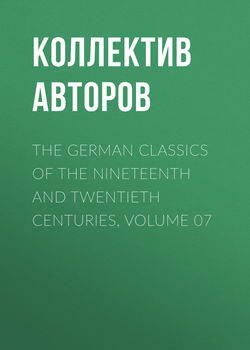Читать книгу The German Classics of the Nineteenth and Twentieth Centuries, Volume 07 - Коллектив авторов, Ю. Д. Земенков, Koostaja: Ajakiri New Scientist - Страница 4
GEORG WILHELM FRIEDRICH HEGEL
THE PHILOSOPHY OF LAW (1832)
THE CONSTITUTION
ОглавлениеThe constitution is rational, in so far as the State defines and differentiates its functions according to the nature of its concept.
Who shall make the constitution? This question seems intelligible, yet on closer examination reveals itself as meaningless, for it presupposes the existence of no constitution, but only a mere mass of atomic individuals. How a mass of individuals is to come by a constitution, whether by its own efforts or by those of others, whether by goodness, thought, or force, it must decide for itself, for with a disorganized mob the concept of the State has nothing to do. But if the question does presuppose an already existing constitution, then to make a constitution means only to change it. The presupposition of a constitution implies, however, at once, that any modification in it must take place constitutionally. It is absolutely essential that the constitution, though having a temporal origin, should not be regarded as made. It (the principle of constitution) is rather to be conceived as absolutely perpetual and rational, and therefore as divine, substantial, and above and beyond the sphere of what is made.
Subjective freedom is the principle of the whole modern world—the principle that all essential aspects of the spiritual totality should develop and attain their right. From this point of view one can hardly raise the idle question as to which form is the better, monarchy or democracy. One can but say that the forms of all constitutions are one-sided that are not able to tolerate the principle of free subjectivity and that do not know how to conform to the fully developed reason.
Since spirit is real only in what it knows itself to be, and since the State, as the nation's spirit, is the law permeating all its affairs, its ethical code, and the consciousness of its individuals, the constitution of a people chiefly depends upon the kind and the character of its self-consciousness. In it lies both its subjective freedom and the reality of the constitution.
To think of giving a people a constitution a priori, though according to its content a more or less rational one—such a whim would precisely overlook that element which renders a constitution more than a mere abstract object. Every nation, therefore, has the constitution which is appropriate to it and belongs to it.
The State must, in its constitution, permeate all situations. A constitution is not a thing just made; it is the work of centuries, the idea and the consciousness of what is rational, in so far as it is developed in a people. No constitution, therefore, is merely created by the subjects of the State. The nation must feel that its constitution embodies its right and its status, otherwise the constitution may exist externally, but has no meaning or value. The need and the longing for a better constitution may often indeed be present in individuals, but that is quite different from the whole multitude being permeated with such an idea—that comes much later. The principle of morality, the inwardness of Socrates originated necessarily in his day, but it took time before it could pass into general self-consciousness.
